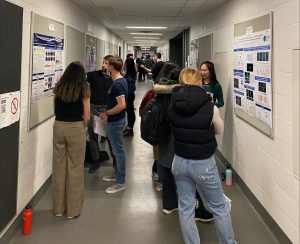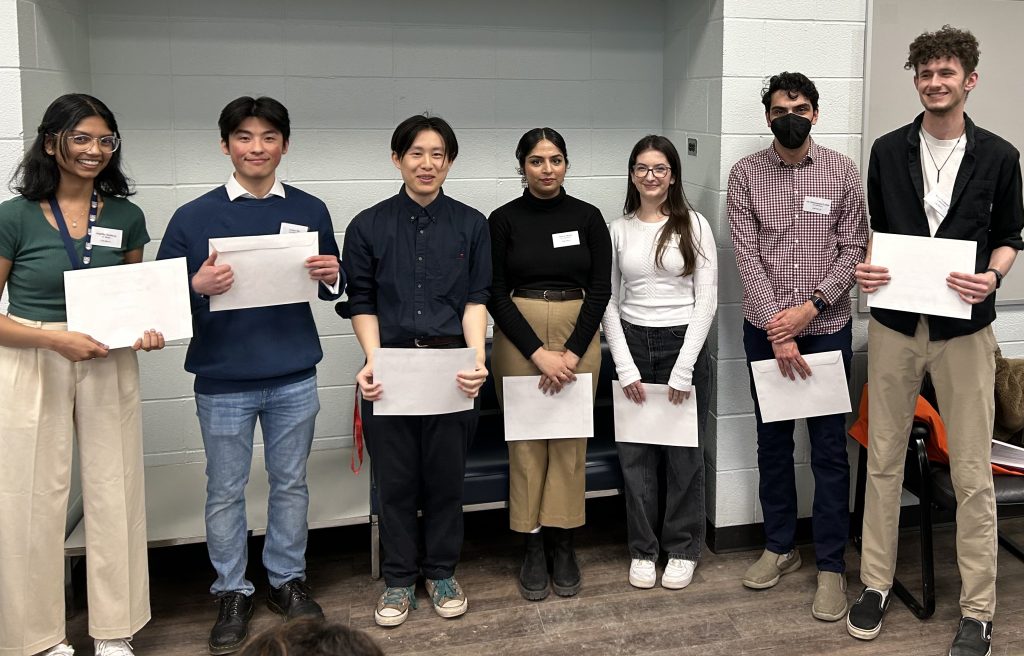 A year of research by CSB project students culminated in a poster session on March 31st, 2023. The students used the posters to describe their research and results, while answering questions from peers and professors. This presentation represents the final step of their CSB497/498 course.
A year of research by CSB project students culminated in a poster session on March 31st, 2023. The students used the posters to describe their research and results, while answering questions from peers and professors. This presentation represents the final step of their CSB497/498 course.
Presentations were assessed based on the descriptions given by students and on the ability of students to respond to questions. Outstanding presentations were awarded the F Michael Barrett award. Undergraduate Chair Dinesh Christendat revealed that “It was a challenge for the judges to assign these awards, since all the presentations were impressive.”
Angitha Mriduraj studied “Characterizing the Impact of Camsap2a Knockout on Patterning genes during Zebrafish Epiboly” in the Bruce lab. The Bruce lab studies how the complex and varied body plans of animals are generated during embryonic development.
Arthur Siu studied how “Intracellular Calcium is Necessary for Viscosity-dependent Cell Migration” in the Plotnikov lab for his award. The Plotnikov lab aims to uncover how migration of animal cells is controlled by mechanical signals form the extracellular environment.
Yutei Shi earned his award for “From Enhancer Sequence to Function: Validating Novel Neural Network Predictions on Contribution of Motifs and Motif Copy Number” in the Mitchell lab. The Mitchell lab studies how the genome functions in stem cells to regulate self-renewal and differentiation.
Smera Mehta worked on “Testing a new single copy transgenesis method in C. elegans” in the Calarco lab to earn her award. The Calarco lab studies post-transcriptional gene regulation in the nervous system.
There were two awards for research in the Saltzman lab which studies the role of chromatin regulation in establishing and maintaining the gene expression differences that underlie cellular identity. Sofia Eiras earned her award for “Histone H2A monoubiquitylation by Polycomb Repressive Complex 1 in C. elegans nervous system development” and Aly Muhammad Al-Karim Ladak won for “Guardians of the epigenome? The role of the histone methylation readers CEC‐3 and CEC‐6 in heterochromatin establishment and repetitive element silencing”.
Evan Berthelot earned an award for research in the McFarlane lab on “Investigating the Role of Auxin in Cell Wall Synthesis”. The McFarlane lab researches plant growth and development and the fundamental mechanisms by which plants sense their environment and adjust their growth in response.
Congratulations to everyone who came out to present, and especially to our outstanding award winners!

